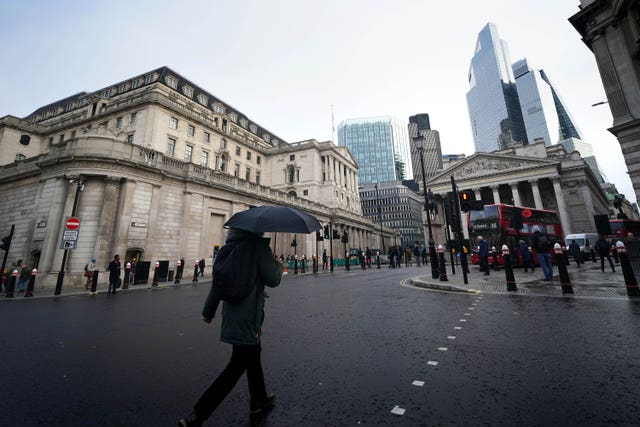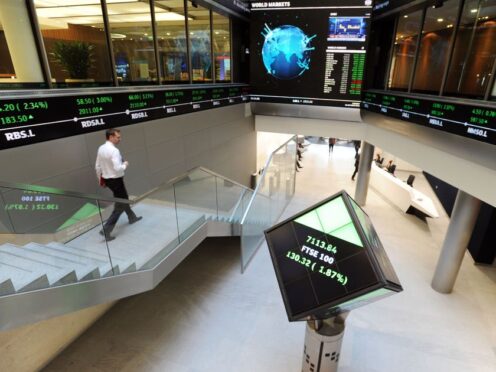The UK’s top stock market index hit a new all-time high on Tuesday, as investors were buoyed by hopes of interest rate cuts and an easing in geopolitical tensions.
The FTSE 100 hit 8,076.52 points on Tuesday morning, surpassing a previous record of 8,047.06 in February 2023.
Here the PA news agency looks at what is behind the rise and what it means:
– What is the FTSE 100?
The FTSE 100 is Britain’s premier stock market, where investors buy and sell shares in the 100 highest valued public companies in the country.
It includes household names like Sainsbury’s and Marks & Spencer, oil giants Shell and BP, and banks including HSBC, Lloyds Banking Group and Barclays.
– What has happened?
The index has hit a new record all-time high, referring to the combined trading values of the companies on the market.
The more valuable the company, the more influence it has on the direction of the FTSE 100 as a whole. The value of the index is measured in points.
At the moment, Shell is the highest valued company in the index with a market capitalisation – the total value of all of the shares in the company – of £186 billion.
The points total of 8,076.52 on Tuesday came after a record closing high on Monday afternoon (the score when trading stopped for the day) of 8,023.87 points.
– Why does it matter?
While the FTSE 100 is not a measure of the broader economy, it can tell us something about how some of Britain’s biggest companies are faring, making it a useful economic indicator.
Moreover, it could have a direct effect on ordinary people’s savings.
If you have money locked away in stocks and shares – perhaps via a pension scheme – some of it may well be in the FTSE 100.

– Why has it broken a new record?
Investors have been encouraged by signs that tensions in the Middle East have eased in recent days, after missile strikes between Israel and Iran last week, which helped oil prices retreat.
Analysts also credited the push on a weakening in the value of the pound against the US dollar. Sterling is trading at five-month lows against the dollar, at just 1.23 US dollars, and was half a cent down on Tuesday.
The FTSE 100 contains many large international companies whose earnings are generated in dollars but reported in pounds, meaning they become more profitable when the dollar strengthens.
This benefits UK-based investors and means London stock markets are given a boost.
– What happens next?
Investors think things will continue to improve.
Optimism is high that the economy will return to growth this year, after falling into a shallow recession at the end of 2023, which is also boosting UK stocks.
And hopes have grown in recent months that the Bank of England will cut interest rates over the summer months as inflation beats a retreat.
Jason Hollands, managing director of online investment platform Bestinvest, said the Footsie’s new record could “usher in a new dawn for UK equities”.
“The news is a little less gloomy for UK equities at the moment,” he said.
“And it’s high time, as UK equities have endured a long negative narrative around investor outflows, companies switching their listings overseas, and underperformance compared to the more exciting US market.”
